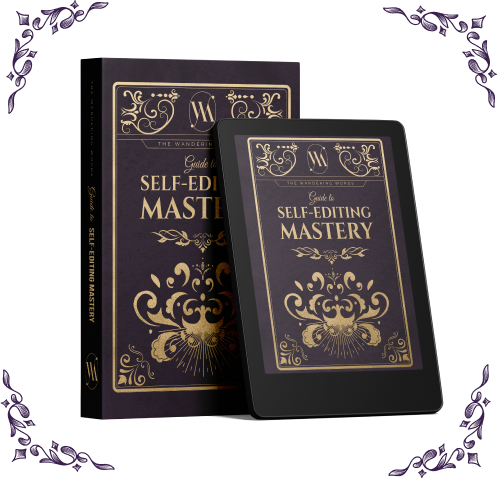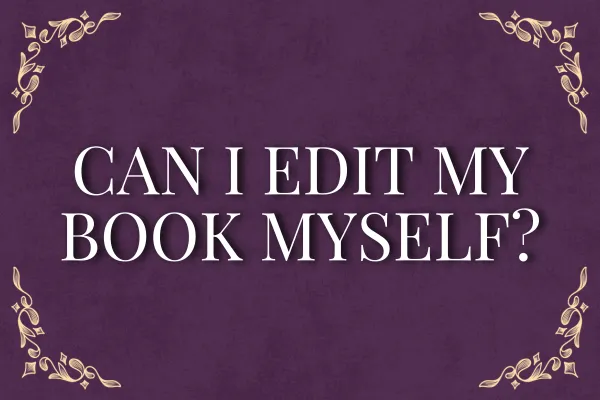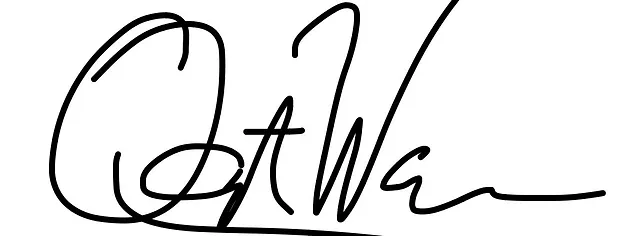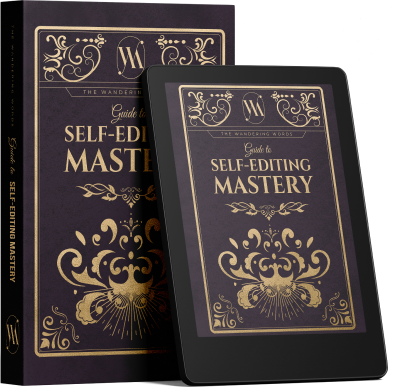Our Guide to Self-Editing Mastery has helped thousands of authors just like you:
- Pre-edit their books with ease
- Avoid the most common writing errors
- Quickly identify spelling & grammar mistakes
- Be more prepared for professional editing
Our Guide to Self-Editing Mastery has helped thousands of authors just like you:


It would be easy to just write, “No,” and then stop there.
Because that’s the answer.
But I suppose some explanation would help with understanding why it isn’t a good idea to ignore this recommendation and do it anyway. So, let’s dive in.
Writing a book is a very personal experience.

Whether fiction or non-fiction, it takes a lot of time and energy to produce something of substantive length and quality to release into the world for neverending scrutiny.
So naturally, you want it to be the best representation of your talent and ability it can be.
Many writers refer to their books as their babies; their children. For that reason, as editor of your own book, you will not look with the impartial eye an editor needs to find and resolve issues to make sure the book is the perfect high-quality product you want it to be.
Your objectivity is gone after spending days/weeks/months or maybe years with the words on those pages. You need someone to look with fresh eyes and help you take it from good to great. That’s the job of an impartial editor.
While you may be terrific at crafting a story, you may not have all the tools needed to put together a whole book.
This is where an excellent editor can be invaluable.
Yes, editing is about checking for spelling and grammar. They will make sure everything is punctuated correctly, and you haven’t broken any Chicago Manual of Style laws. But an editor can help in many more ways.
For example, word choice. Sometimes a writer has a particular word they love. I just finished editing a piece where the writer had a fondness for “shall.” A perfectly good word but not particularly contemporary, and several pages in, it becomes noticeable how often it was getting used. So I made the suggestion that we swap out “should.” A minor change that doesn’t alter the meaning one bit but freshens the text and gives it a more updated feel.
If you are writing fiction, then a developmental editor can help with flow, character development, plot holes, side stories, and more. And this hardly scratches the surface of what a high-quality editor can do for you. Editors are not just for spelling anymore.
Yep. There I said it.
You are always going to think whatever you write is the next great novel. Or a perfect solution to whatever issue you are addressing.
And you should.
Otherwise, why write?

But many of us who write catch typos or bad word choices as we write and think we’ve gotten them all when we’re done.
And we think what we’ve written is the best possible version of whatever the heck we were trying to say.
Really?
Now we all know better than that.
Now we could get our spouse, sister, brother, child, or high school English teacher to read our “baby” but chances are they don’t have the heart to give us the honest truth.
A professional editor probably won’t break your heart either (c’mon, they have bills to pay, too!). But they will give you an honest, objective assessment of your work that can only make you a better writer.
And there’s nothing bad about any of that.
As someone who edits for a living, it has become an occupational hazard to find errors in everything I see. Restaurant menus, theater playbills, Facebook memes, online articles, you name it.
It’s annoying even for me.
Although probably more so for my daughter and all my friends when I send their text messages back with suggested grammatical corrections.
*Ahem.
Typos are SNEAKY!
Which is frustrating because, when it comes to a full-length book, even the best editors AND proofreaders can’t catch every. Single. Little. Thing.
But they can get you darn close.
And if you found an error in this piece . . . I did it on purpose to see if you were paying attention.
Happy editing!
Hey there! Before you go, have you downloaded my FREE self-editing manual? The Ultimate Self-Published Author’s Guide to Editing by Qat Wanders (yup, that’s me!) is packed full of tips and tricks and self editing basics to edit your own work so you can not only make your editor’s and proofreader’s life easier but also save yourself a ton on editing fees.
Did you know the cleaner your manuscript is when you send it to your editor, the less he or she will have to charge you? Click HERE to download it now and subscribe to my list so you are notified when helpful writing and editing content is published not only here on my blog but elsewhere on the WWW (World of Writing Wherever)!
Happy writing!

Qat Wanders / Best-Selling Author, Editor, and CEO of Wandering Words Media
I will make your story AWESOME!

